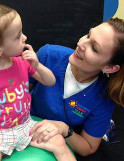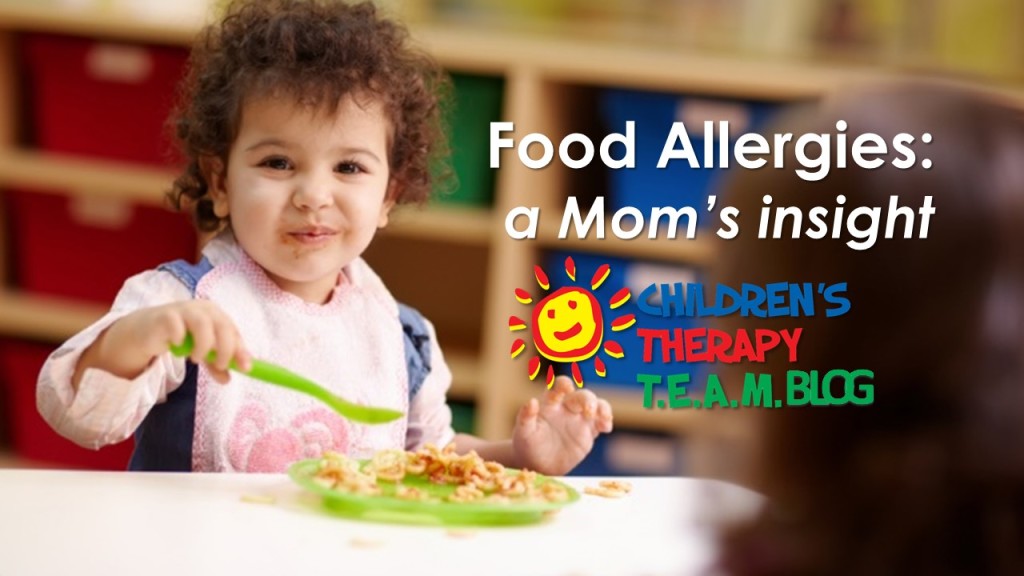The Asthma and Allergy Foundation of America (AAFA) has declared May as “National Asthma and Allergy Awareness month,” and May 8 – 14, 2016 was Food Allergy Awareness week, deemed so by Food Allergy Research and Education (FARE). We’re a little late with this post, but better late than never, right?
Food allergies are a significant issue in the lives of many of our children. According to the American College of Allergy, Asthma and Immunology, food allergies occur when the body’s natural defenses overreact to exposure to a particular substance, treating it as an invader and sending out chemicals to defend against it.
How Common are Food Allergies? According to the American College of Allergy, Asthma and Immunology:
- Food allergies are estimated to affect 4-6% of children and 4% of adults.
- The most common food allergens are milk, soy, eggs, wheat, peanuts, tree nuts, fish and shellfish.
- Peanut is the most common allergen, milk is second, shellfish is third.
The most severe allergic reaction is anaphylaxis – a life threatening whole-body allergic reaction that can impair breathing, cause a dramatic drop in blood pressure, and affect heart rate. Anaphylaxis can come on within minutes of exposure to the trigger food. It can be fatal and must be treated promptly with an injection of epinephrine (such as an EpiPen).
In this post I wanted to offer a Mom’s insight on food allergies. As I, myself, do not have a child with food allergies, I decided to locate a parent who is actually “in the trenches” when it comes to problem-solving the very real concerns related to severe food allergies. Therefore, I interviewed Martha Tompkins, a local mother, whose 7 year old son, Luca has severe food allergies.
Melissa: When did you first know that your child had food allergies?
Martha: During his 6 mo check-up, Dr. Harvey, Luca’s pediatrician, saw Luca scratching the side of his belly and said that it looks like he has allergies. He recommended we see Dr. Campbell. We set an appointment and got him tested and sure enough, Luca was diagnosed with food and environmental allergies. We started reading and researching about food allergies. I don’t think we have stopped reading about it to this day. There is a lot of new information about food allergies. We try to stay updated and follow three or four blogs and Facebook pages to keep informed.
Melissa: What are your son’s specific allergies?
Martha: His food allergies are peanut, tree nut, soy, egg and sesame. His peanut/tree nut allergy is high enough that we were prescribed an EpiPen. We don’t leave home without it.
Melissa: What tricks do you have for avoiding allergens at school, birthday parties, etc., when your child is not able to be under your watchful eye?
Martha: Luca takes his lunch to school every day. He sits at the “peanut-free table” while he eats lunch at school. For birthday parties, we bring cookies with us in case he cannot eat the cake. But his friends know about his allergies, and they try to accommodate. I have had moms text me to see if it’s safe for Luca to have whatever they are thinking about having at the party. Luca is now old enough to tell people about his allergies. He is very good about asking if something has peanuts or soy, because he’s allergic to it. If his dad and I are not around, we tell the other parents about Luca’s allergies and give them his EpiPen. So far, everyone has been very accommodating.
Melissa: Who do you teach to use the EpiPen, and how difficult is it for them to use?
Martha: Anytime Luca is going to spend time with another adult, we share with them his Epi and walk them through how to use it. We have never had to use his EpiPen so far.
Melissa: What are your best tips for avoiding “close calls”?
Martha: We are always on high alert for allergies. We read the ingredients of everything Luca eats. Also, we always tell the waiter about it, regardless of what restaurant we go to. We have never encountered a restaurant that wasn’t willing to answer our questions or show us their allergy menu.
Melissa: It seems as though you have so much figured out! How do you stay informed on the latest food allergy information?
Martha: The internet is a fantastic resource. I follow many blog pages to swap stories with other parents who are in the same boat. My favorite one is Kids with Food Allergies Foundation (KFA). I also follow FARE (Food Allergy Research and Education). We’ve participated in the FARE walk three times. We love the community participation, and it helps Luca to see that other kids have food allergies too. Allergy Moms and AllergyEats are good too.
Resources:
Asthma and Allergy Foundation of America: Allergy Facts and Figures (accessed May 2016)
Food Allergies, American College of Allergy, Asthma & Immunology (accessed June 2016)
About the Author:
 Melissa Foster is the leading contributor to Children’s Therapy TEAM’s Weekly Blog. She is a Pediatric Occupational Therapist with over a decade of experience in the field. An active public advocate in the NWA community, Melissa addresses topics related to Autism, Sensory Processing Disorder and general health and child development.
Melissa Foster is the leading contributor to Children’s Therapy TEAM’s Weekly Blog. She is a Pediatric Occupational Therapist with over a decade of experience in the field. An active public advocate in the NWA community, Melissa addresses topics related to Autism, Sensory Processing Disorder and general health and child development.

